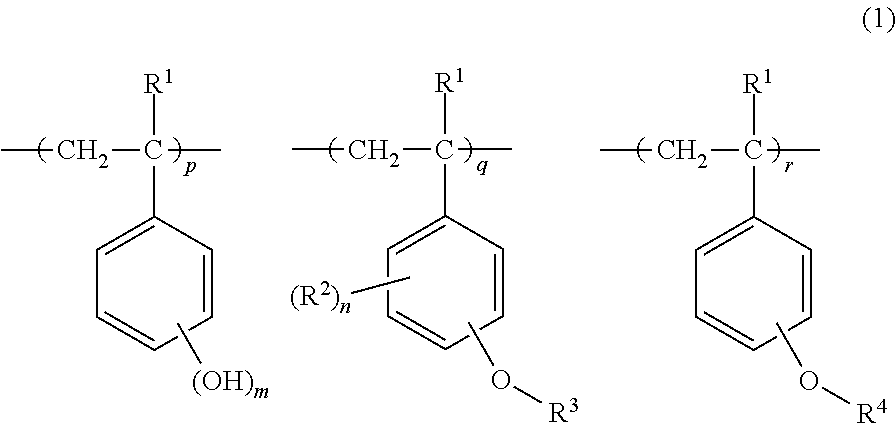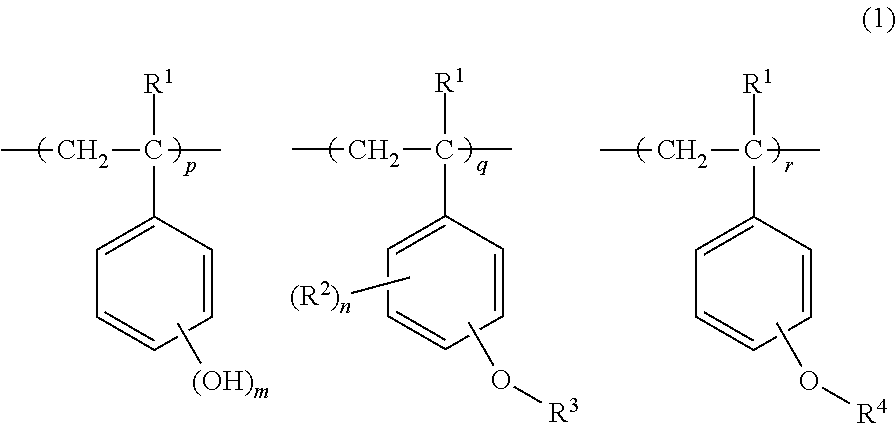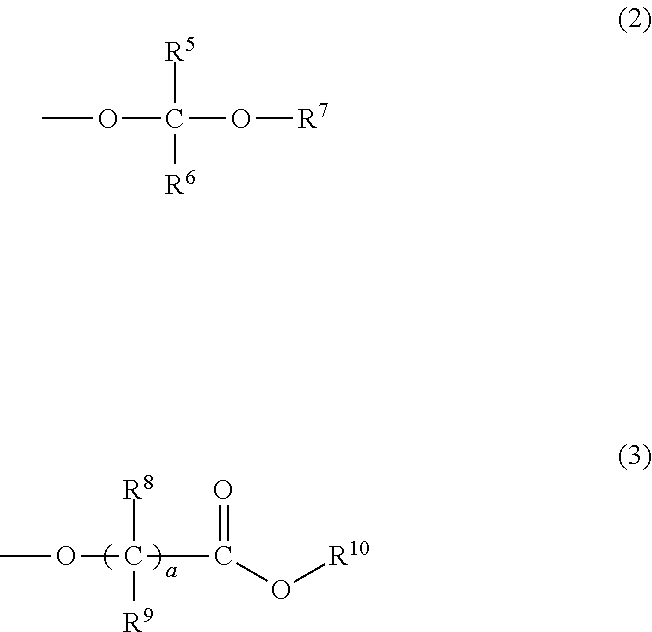Chemically amplified positive resist composition and pattern forming process
a technology of positive resist and composition, applied in the field of chemically amplified positive resist composition and pattern forming process, can solve the problems of loss of film thickness, dimensional accuracy reduction, brittleness or physical properties of cured films, etc., and achieve resolution, development and pattern profiles. , the effect of satisfying sensitivity
- Summary
- Abstract
- Description
- Claims
- Application Information
AI Technical Summary
Benefits of technology
Problems solved by technology
Method used
Image
Examples
example
[0076]Examples of the invention are given below by way of illustration and not by way of limitation.
examples 1 to 18
[0077]A resist solution was prepared by dissolving amounts (shown in Table 1) of a base resin comprising recurring units shown below (Polymer-1 or 2), a photoacid generator (PAG-1 or 2), a thermal crosslinker (Linkers-1 to 6), a basic compound (Amine-1), shown below, and a surfactant X-70-093 (Shin-Etsu Chemical Co., Ltd.) in propylene glycol monomethyl ether acetate (PGMEA), and filtering through a membrane filter with a pore size of 1.0 μm. The resist solution was spin coated onto a 6-inch silicon wafer (having copper deposited thereon by sputtering) and soft baked on a hot plate under the conditions shown in Table 2, forming a resist film of 5.0 μm thick.
example 19
[0084]The sample of Example 1 was evaluated for solvent resistance. As in Example 1, a resist film was formed on a 6-inch silicon wafer by means of a spin coater, puddle developed in a 2.38 wt % TMAH aqueous solution for 100 seconds, rinsed with deionized water, and heated in an oven at 200° C. for 1 hour, forming a film of 5 μm thick. The wafer having the cured film formed thereon was immersed in N-methyl-2-pyrrolidone (NMP) at room temperature for 30 minutes and rinsed with deionized water. The thickness of the film after immersion was measured and compared with the thickness prior to immersion. A percent film retention was calculated as an index for solvent resistance. The results are shown in Table 3.
PUM
| Property | Measurement | Unit |
|---|---|---|
| reaction time | aaaaa | aaaaa |
| reaction time | aaaaa | aaaaa |
| reaction temperature | aaaaa | aaaaa |
Abstract
Description
Claims
Application Information
 Login to View More
Login to View More - R&D
- Intellectual Property
- Life Sciences
- Materials
- Tech Scout
- Unparalleled Data Quality
- Higher Quality Content
- 60% Fewer Hallucinations
Browse by: Latest US Patents, China's latest patents, Technical Efficacy Thesaurus, Application Domain, Technology Topic, Popular Technical Reports.
© 2025 PatSnap. All rights reserved.Legal|Privacy policy|Modern Slavery Act Transparency Statement|Sitemap|About US| Contact US: help@patsnap.com



